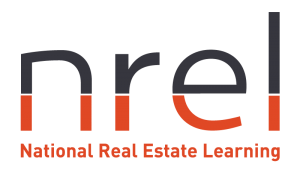How to Become a Real Estate Agent in Australia: A Guide
Do you want a career that offers flexibility, high earning potential, and the chance to meet new people every day? Becoming a real estate agent in Australia might be the perfect fit for you.
The property market is vibrant and constantly evolving, making it an exciting industry to be part of. Whether you’re drawn by the idea of helping people find their dream homes or want to build a rewarding sales career, being a real estate agent can be a rewarding career for you.
This blog offers a comprehensive guide on how to become a real estate agent, covering everything from training to licensing and everything in between.
Benefits of Becoming a Real Estate Agent
Choosing to become a real estate agent opens the door to a flexible work schedule, competitive commissions, and the chance to build your own network of clients. You’ll gain skills that are transferable across many industries, including negotiation, marketing, and customer service. Additionally, many agents appreciate the independence of managing their own time and pursuing career progression.
This guide will cover the essential steps to enter the industry, focusing on training courses available through NREL, licensing requirements that differ by state, and how to develop your skills for a successful career.
Understand the Role of a Real Estate Agent
With housing demand continuously increasing across cities and regional areas, real estate agents play a crucial role in guiding buyers, sellers, landlords, and tenants through the complex property market.
At its core, a real estate agent helps clients buy, sell, or rent properties. This involves conducting property inspections, negotiating deals, marketing listings, and preparing contracts. Agents must stay informed about local market trends and legal requirements to provide accurate advice to clients.
The core skills needed to become a real estate agent are:
- Communication: Clear, persuasive communication is key when liaising with clients, other agents, and stakeholders.
- Sales: Agents must understand sales techniques and client psychology to close deals successfully.
- Customer Service: Building trust and maintaining long-term relationships are fundamental.
- Legal Understanding: Knowledge of property law and contract requirements is crucial to avoid legal pitfalls.
State-Based Licensing Requirements
Real estate licensing is regulated by individual states, so requirements can vary. Here’s a brief look at some of the differences:
- Queensland: Requires completion of Certificate IV in Real Estate Practice and then applying to the Office of Fair Trade.
- New South Wales: Class 2 agent candidates must complete Certificate IV in Real Estate Practice and apply through NSW Fair Trading.
- Victoria: Requires a Certificate IV qualification and registration with Consumer Affairs Victoria.
Because regulations change, it’s always best to check with your state’s licensing authority or use NREL’s guidance to ensure you meet all criteria.
Step-by-Step Process to Becoming an Agent
1. Choose the Right Qualification
The nationally recognised Certificate IV in Real Estate Practice (CPP41419) is the standard qualification needed to work as a real estate agent in Australia. However, the units depend on the regulator in each state. It typically covers the necessary skills, including property sales, property management, and understanding legal frameworks. Studying with a registered training organisation (RTO) like NREL ensures your qualification is valid across Queensland, New South Wales, and Victoria.
2. Enrol in a Recognised Course
NREL offers an online, self-paced Certificate IV course, perfect for balancing study with life commitments. You’ll get access to a comprehensive resource library, personalised support from experienced assessors, and digital tools to help you learn effectively.
3. Apply for Your Certificate or Licence
Once you complete the course, you’ll need to apply for your real estate licence with your state authority. This process may include identity verification, background checks, and providing evidence of practical experience.
4. Gain Experience in the Industry
Practical experience is invaluable. Many new agents begin by working under a licensed agent or agency to develop their skills, build their network, and gain confidence.
5. Commit to Ongoing Development
The real estate industry is always evolving. Many states require agents to complete continuing professional development (CPD) on an annual basis. NREL supports ongoing learning with additional training options to help you stay sharp and compliant.
Costs Involved in Becoming a Real Estate Agent
The cost to become a real estate agent typically includes course fees, licensing application fees, and, in some cases, exam fees. For example, NREL’s Certificate IV course fees are competitively priced, considering the comprehensive training and ongoing support you receive. Investing in accredited training is a smart move that sets you up for long-term success.
Why Choose NREL for Your Training?
NREL (National Real Estate Learning) is a trusted RTO (No. 40998) with training recognised across Queensland, New South Wales, and Victoria. Their fully online, self-paced learning model means you can study wherever and whenever suits you best. Plus, NREL provides 24/7 support to ensure you never feel stuck.
Conclusion
Becoming a real estate agent in Australia is a rewarding journey that requires the proper training, licensing, and dedication. By choosing Certificate IV in Real Estate Practice through NREL, you gain nationally recognised qualifications, flexible learning options, and ongoing support.
Whether you’re just starting out or looking to advance your career, taking the first step with NREL could be the key to unlocking your future success in real estate.
Visit https://nrel.edu.au/ today and gain valuable skills and knowledge that will help you thrive in the real estate industry.
FAQs
Do I need a degree to become an agent?
No, a Certificate IV in Real Estate Practice is the required qualification.
How long does it take to qualify?
The Certificate IV course can be completed at your own pace, often within 6 to 12 months.
Can I work while studying?
Absolutely. NREL’s flexible online format makes it easy to balance your studies with job or family commitments.





